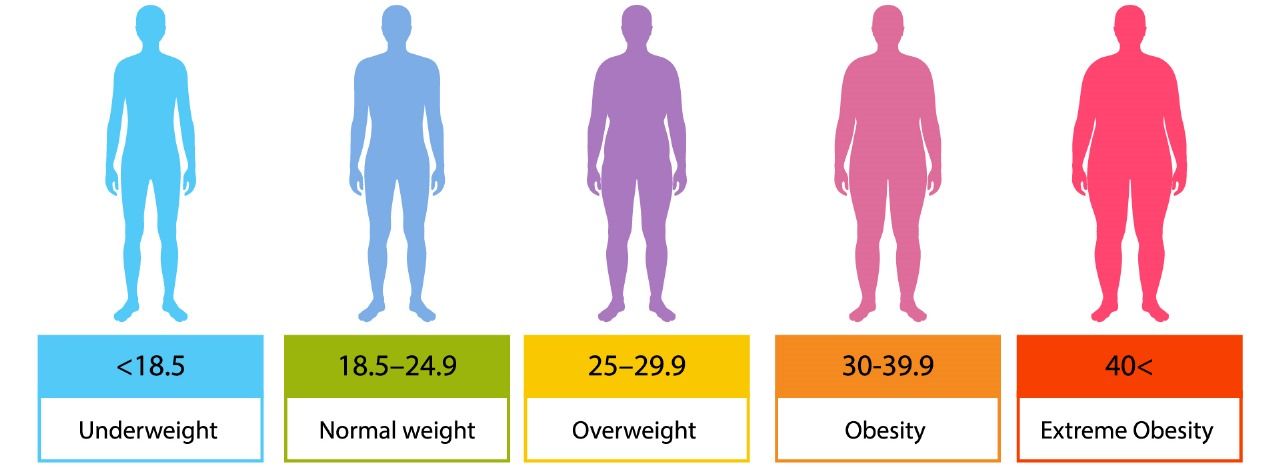
Overview
A BMI calculator quickly shows if your weight is within a healthy range based on height and weight. It’s easy, fast, and widely used by health professionals. This guide explains how to calculate your BMI, understand the results, and use additional tools for a more accurate view of your health.
A BMI calculator is the quickest way to check weight status using height and weight. It gives you a single number called Body Mass Index (BMI). That number helps screen for underweight, healthy weight, overweight, or obesity. The tool is fast, simple, and used worldwide by health professionals.
But BMI is not perfect. It does not separate fat from muscle. It does not show where you store fat. And it cannot replace medical advice. In this guide, you’ll learn how to calculate BMI, read your result, and avoid common mistakes. You’ll also see which extra metrics to pair with BMI for a clearer picture of health.
What Is a BMI Calculator?
A BMI calculator is an online tool that turns your height and weight into a BMI score. The formula is:
BMI = weight (kg) ÷ height² (m²)
If you prefer pounds and inches, many calculators handle unit conversion for you. You can also convert first, then use the metric formula. The result places you in a standard category. These categories help screen possible health risk.
Why people use a BMI calculator:
It gives instant feedback.
It’s easy to repeat over time.
It helps track trends during a health plan.
It supports goals for weight, diet, and activity.
💡 Tip: Use accurate measurements for the most reliable BMI calculation results.
BMI Categories and What They Mean
Understanding your BMI score is crucial for health assessment. Here are the standard BMI categories: Underweight: BMI below 18.5 - May indicate malnutrition or underlying health issues. Normal Weight: BMI 18.5-24.9 - Indicates a healthy weight for your height.
To determine your Ideal Weight range more precisely, try our Ideal Weight Calculator. Overweight: BMI 25-29.9 - Slightly above ideal weight, may increase health risks. Obese Class I: BMI 30-34.9 - Moderate obesity with increased health risks. Obese Class II: BMI 35-39.9 - Severe obesity requiring medical attention. Obese Class III: BMI 40+ - Very severe obesity with significant health risks.
💡 Tip: Remember that BMI is just one indicator of health - muscle mass, bone density, and overall body composition also matter.
How to Use BMI Calculator
Using a BMI calculator is incredibly simple. First, measure your weight accurately using a reliable scale, preferably in the morning. Next, measure your height without shoes using a measuring tape or stadiometer. Enter your weight in kilograms or pounds and height in meters, centimeters, or feet/inches into the BMI calculator.
Click calculate, and you'll instantly see your BMI score along with the category you fall into. For example, a person weighing 65 kg with height 160 cm would have a BMI of 25.4, placing them in the overweight category.
💡 Tip: Take measurements at the same time of day for consistency, as weight can fluctuate throughout the day.
What BMI Can (and Can’t) Tell You
What BMI is good for
A quick snapshot of weight relative to height.
Population screening and public health tracking.
Personal trend monitoring over months.
What BMI misses
Body composition (fat vs muscle).
Fat distribution (belly vs hips).
Fitness level and cardiometabolic health.
Individual ethnic and age differences.
Special cases like pregnancy or medical conditions.
Because of these gaps, use BMI as one data point. Not the whole story.
BMI Calculator for Different Age Groups
BMI calculations vary slightly for different age groups. For adults (18+ years), the standard BMI categories apply universally. However, for children and teenagers (2-19 years), BMI is interpreted differently using age and gender-specific percentiles.
For example, a 10-year-old boy with a BMI of 18 might be in the 75th percentile, which is considered healthy. For seniors (65+ years), slightly higher BMI ranges (23-28) are sometimes considered acceptable due to age-related muscle loss and bone density changes.
💡 Tip: Consult healthcare professionals for BMI interpretation in children, teenagers, and elderly individuals.
Limitations You Should Know
BMI is a screening tool, not a diagnostic test. Key limitations:
Muscle vs fat: BMI can label muscular people “overweight.”
Fat distribution: Belly fat carries more risk than hip or thigh fat. BMI can’t tell the difference.
Ethnic variation: Some groups may face higher risk at lower BMIs.
Pregnancy and certain conditions: BMI is not suitable alone.
Athletes: Extra lean mass can elevate BMI without raising risk.
Takeaway: Always add waist measures, body fat estimates, and health markers to your assessment.
💡 Tip: Use BMI alongside other health indicators like waist circumference, body fat percentage, and overall fitness level.
How to Use a BMI Calculator the Right Way
Measure accurately. Height without shoes. Reliable scale.
Standardize timing. Weigh at the same hour if possible.
Log your results. Record BMI and date.
Track trends. Focus on the weekly or monthly pattern.
Pair metrics. Add waist, body fat percentage, and performance notes.
Pro tip: If your BMI is near a category boundary, repeat measurements over a few days. Use the average to reduce random noise.
Interpreting Your BMI: What to Do Next
If you’re underweight (< 18.5)
Assess caloric intake and protein.
Screen for unintentional weight loss.
Check energy levels, immune health, and hair/skin changes.
Consider speaking with a clinician or dietitian.
Add strength work and balanced meals.
If you’re in the normal range (18.5–24.9)
Maintain habits that keep waist and labs healthy.
Aim for whole foods, regular movement, and 7–9 hours of sleep.
Track energy and performance.
Keep an eye on waist-to-height ratio as you age.
If you’re overweight (25–29.9)
Measure your waist and calculate waist-to-height ratio.
Consider small calorie adjustments and more daily steps.
Add resistance training to protect lean mass.
Recheck BMI and waist every 4–6 weeks.
Discuss risk factors with your provider if you have high blood pressure, high LDL, or high fasting glucose.
If you’re in obesity ranges (≥ 30)
Focus on sustainable strategies.
Aim for 0.25–0.5% body weight loss per week.
Use a calorie calculator to set targets.
Keep protein high and add strength training.
Work with a clinician if you have multiple risk factors.
Consider a multidisciplinary plan if needed.
Beyond BMI: 5 Complementary Measures to Use
Waist-to-Height Ratio (WHtR)
Measure your waist at the narrowest point. Divide by height.
Goal: Keep waist under 0.5 × height.
This measure tracks central fat more directly than BMI.
Waist-to-Hip Ratio (WHR)
Divide waist by hip circumference.
Targets: Men < 0.90; Women < 0.85 (general guidance).
Useful for understanding fat distribution.
Body Fat Percentage
Estimate fat vs lean mass.
Methods: DEXA, skinfold calipers, or bioelectrical impedance.
Use the same method and timing each time for reliable trends.
Basic Labs and Vitals
Blood pressure, lipid panel, and fasting glucose.
These markers help verify risk or improvement.
Fitness and Performance
Track strength, aerobic capacity, mobility, and recovery.
If fitness rises and waist shrinks, that’s a strong signal of progress.
Healthy BMI Tips and Recommendations
Build meals around lean protein, vegetables, fruits, whole grains, and healthy fats.
Use a calorie calculator to set intake for your goals.
Aim for 150 minutes of moderate exercise weekly, minimum.
Lift weights 2–3 times per week to preserve muscle.
Track steps to support daily energy burn.
Drink enough water for your size and activity.
Sleep 7–9 hours for recovery and appetite control.
Change one habit at a time to keep progress steady.
Recheck BMI and waist often enough to validate your plan.
If your numbers worry you, talk to a professional.
💡 Tip: Focus on gradual, sustainable lifestyle changes rather than quick fixes for long-term success.
Quick BMI Chart:
| Tool/Marker | What It Tells You | How Often | Notes |
|---|---|---|---|
| BMI | Weight vs height | Monthly | Screening, not diagnostic |
| Waist | Central fat risk | Every 2–4 weeks | Aim for WHtR < 0.5 |
| Body Fat % | Fat vs lean mass | Every 4–8 weeks | Use one method consistently |
| Steps/Workout Log | Activity volume | Weekly | Supports calorie balance |
| Labs/Vitals | Health risk | 1–2× per year | Discuss with your provider |
BMI Calculator vs Other Health Measurements
While BMI is widely used, other measurements provide additional health insights. Your BMR Calculator helps determine your Basal Metabolic Rate - the calories your body burns at rest, which is crucial for weight management planning. Waist-to-hip ratio measures fat distribution and is often more predictive of health risks than BMI alone.
Body Fat Calculator gives a clearer picture of body composition than BMI by measuring actual fat percentage versus lean muscle mass. Waist circumference is another important indicator - men with waist sizes over 40 inches and women over 35 inches have increased health risks regardless of BMI. Blood pressure, cholesterol levels, and blood sugar are also crucial health markers that BMI cannot assess.
💡 Tip: Combine BMI with other health measurements for a comprehensive understanding of your health status.
Conclusion
Knowing your Body Mass Index (BMI) is a quick and effective way to understand whether you’re in a healthy weight range. While BMI isn’t a complete measure of health, it provides valuable insight into your fitness and wellness status. Use our free BMI Calculator on Digital Calculator to track your progress and support your health goals.
For a more complete picture, consider combining BMI with other tools like body fat percentage or waist circumference. Always consult a healthcare provider for personalized advice, especially if your BMI falls outside the recommended range.
💡 Tip: Remember that health is multifaceted - use BMI as one tool among many in your health toolkit.
